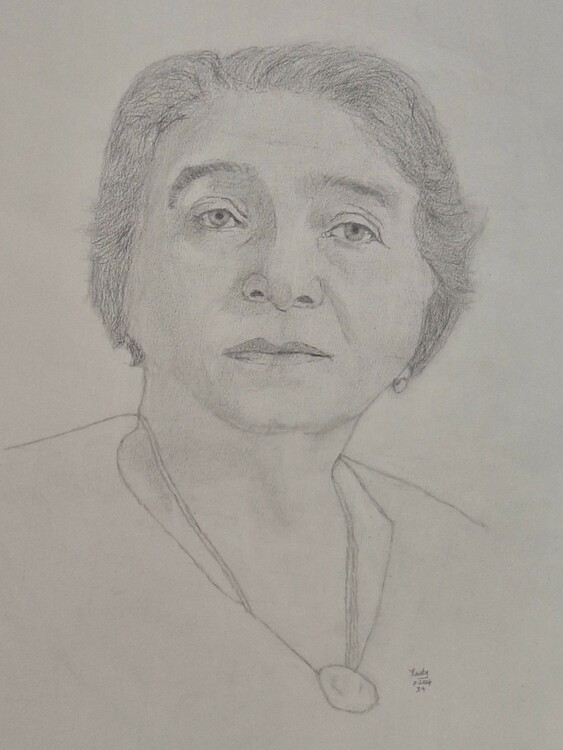
Bina Abramowitz
Bina was born in Russia in 1865. Her father died during her childhood, and she went to live with and was reared by her grandmother. Beginning in her earliest youth, young Bina had manifested a spirit for the theatre. Her grandfather would often visit the wine cellars where performers played theatre, and he would take Bina along, holding her on his lap.
At the age of ten she went off to a village to her mother, who had grown lonesome for her, and she was there for four years. She then got fed up with the village, and traveled to Odessa in order to become independent. This didn't work out for her, and she ended up being supported by her sisters who were located there, from a little bit of support that was sent to her from the village. She wanted to learn a trade, but everywhere, a female apprentice was desired only if she would work for three years without pay, and this deterred her from making such a decision.
She had previously seen theatre. Her older sister and other family members had played in the theatre too. When they would come occasionally to Odessa, her sister would take her along to the theatre, where Bina became so inspired that she didn’t sleep for nights afterwards, and she could only dream of the ‘angel-actors.’
In looking for something to do, a friend of hers who was acquainted with a doorman, conveyed to her that in the Mariinsky Yiddish theatre, they were looking for a chorus singer. The doorman brought Bina to the well-known actor, Sigmund Mogulesko. He gave her an audition, listening to her tiny, old voice, and he took her into his troupe with the proviso that she performs for one month without pay. It turned out to have become four months without pay, because they always looked for some excuse to avoid having to pay her any money.
At this point, Naftali Goldfaden arrived and persuaded her to join his troupe, where she received roles, and he paid her a salary. Her material circumstances became very bad since she had become an actress, and they stopped sending her support from home. Bina therefore accepted Naftali Goldfaden’s proposal. The first role she received was as "The Mother" in "Shmendrik," but she had no lines to speak because the mother was a mute. However, her serious interpretation of the role attracted attention, and from her earliest youth she began to play maternal roles.
In traveling all over Bessarabia with this troupe, she made the acquaintance of the actor Max Abramowitz, and they were married. At this point, a prohibition against Yiddish theatre had broken out, and Bina traveled around with her husband, performing in concerts. After playing in Bukovina, they arrive in Romania where the renown troupe of Sigmund Mogulesko was performing, and then in 1866 he wanted to take her to America, and she went along with him. Here she performed together with her husband in a variety of acting troupes, and after Max's death, she married the actor Kalmen Juvelier.
Throughout the ten-year period of performing in America the pure, serious repertoire of Maurice Schwartz's Yiddish Art Theatre, she developed an exceptional popularity for herself, as well as affection, such that she is characterized in the critical press as "The Mother of the Yiddish Theatre."
Bina also acted in two Yiddish films: "Broken Hearts" in 1926, and "Yiskor" in 1932.
She was a fine, character actress, and will always be remembered as being so.
The Museum of the Yiddish Theatre would like to thank you for honoring these fine actresses by visiting this exhibition. We hope you enjoyed it and learned something new.